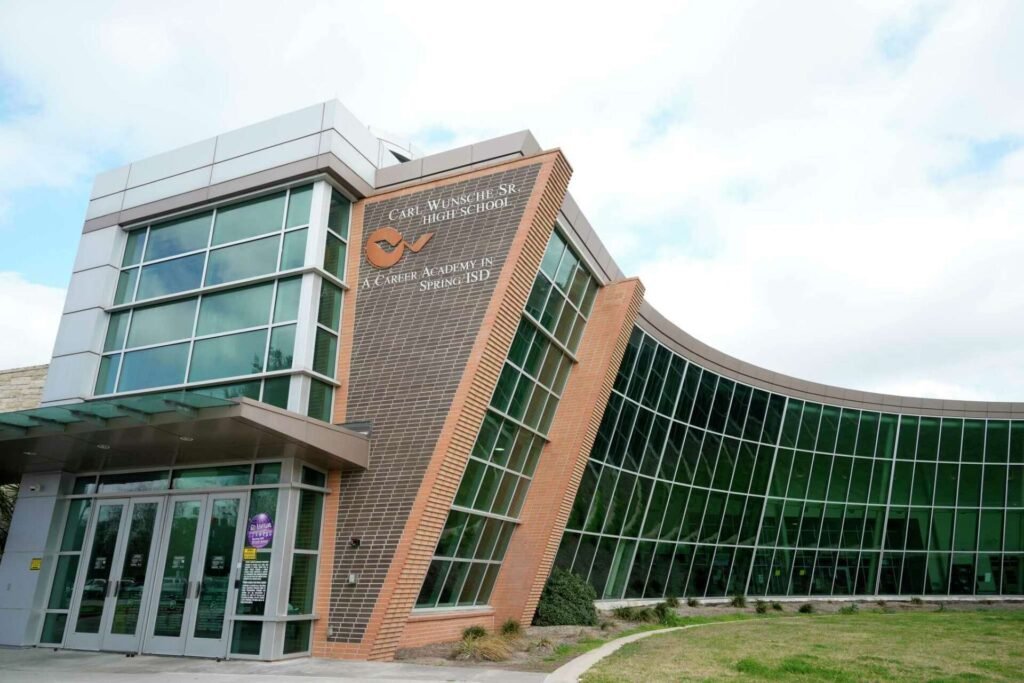Hellow guys, Welcome to TigerJek, today in this article we will dive into the best schools in Kyiv. Choosing the right school is one of the most important decisions parents make for their children. In a city as dynamic and historically rich as Kyiv, education plays a central role in shaping young minds for the future.
Families here, whether local or expatriate, have access to a diverse range of schools offering international programs such as the IB (International Baccalaureate), British IGCSE and A-Levels, American-style AP courses, and even French and German national curricula.
TigerJek takes a closer look at the best schools in Kyiv, breaking down their strengths, standout features, and what parents need to know before making a choice.
Also Read: Best Schools in Michigan
Best Schools in Kyiv
Education in Kyiv: A Quick Overview
Kyiv is Ukraine’s cultural and educational hub, home to some of the country’s oldest universities and forward-looking schools. Parents have three main options:
- Public schools – Free, state-funded, and taught primarily in Ukrainian. They are academically solid but may pose challenges for non-Ukrainian speakers.
- Private Ukrainian schools – Offering smaller classes, bilingual teaching, and often a mix of Ukrainian and international programs.
- International schools – Privately funded institutions catering to both expats and globally minded Ukrainian families. These schools usually follow IB, British, American, French, or German curricula, and tuition ranges from moderate to high.
For families planning long-term international mobility, international schools in Kyiv provide globally recognized diplomas and a multicultural environment. For others who want bilingual education rooted in both Ukrainian and global traditions, hybrid schools can be an ideal balance.
1. Pechersk School International (PSI Kyiv)
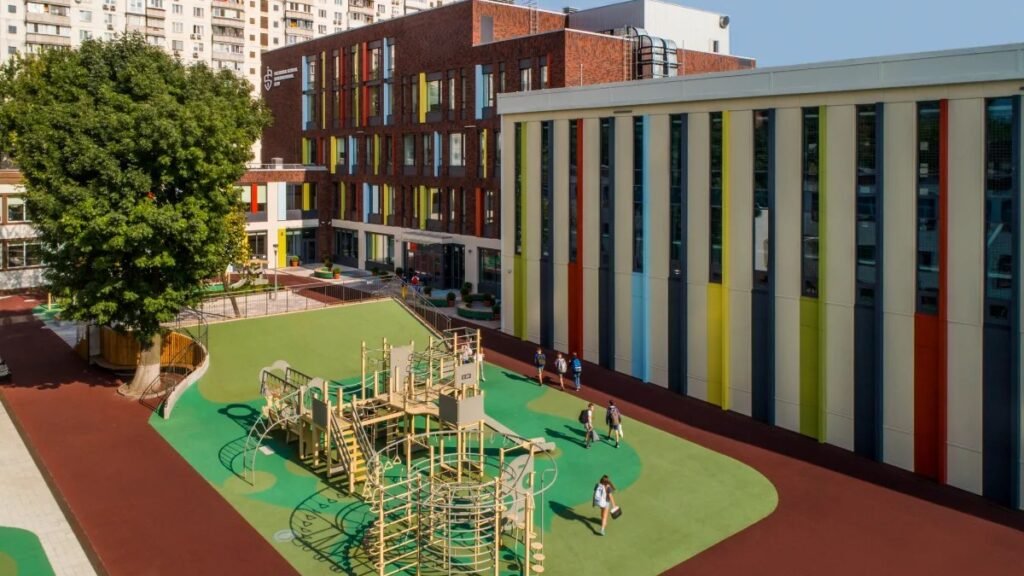
Pechersk School International (PSI Kyiv) rests in Kyiv’s Holosiivskyi district and has made its mark as Ukraine’s only institution fully certified to deliver the entire IB continuum: the Primary Years, Middle Years, and Diploma Programmes—a distinction it has held since 1999 or 2000.
What really stands out about PSI is its solid academic foundation wrapped in a warm, inclusive community ethos. Since opening its doors in 1995, PSI has maintained not-for-profit status, reinvesting tuition into quality staff, cutting-edge facilities, and student services—not into shareholders.
The school’s faculty is a standout feature: educators from around 11 different nationalities, averaging nearly a decade of IB experience, with about 77% holding postgraduate degrees. Classes stay intentionally small—around 18 students per class—so each child gets attention and the freedom to inquire, experiment, and grow.
PSI’s campus, rejuvenated in 2017, now includes modern multi-purpose buildings designed for both academic and extracurricular life. It features designated blocks for primary and secondary students, alongside spacious facilities for assemblies, arts, sports, and after-school activities. The school takes safety seriously, with fully authorized bomb-shelter spaces and a well-equipped medical office to support student well-being.
Fees reflect this investment: for the 2025–26 academic year, total school costs (including tuition and the mandatory Strategic Development Fee) run from around $18,175 for kindergarten to $25,840 for grades 11–12, with occasional discounts for families with multiple children enrolled.
Beyond academics, PSI has maintained continuity when circumstances demanded it—offering temporary satellite classes in Warsaw during the war before safely resuming full operations in Kyiv in August 2023. Its graduates go on to top universities around the world, and the school honors broader social responsibility through programs like “PSI 4 Good” and partnerships supporting children affected by conflict.
2. Kyiv International School (KIS)
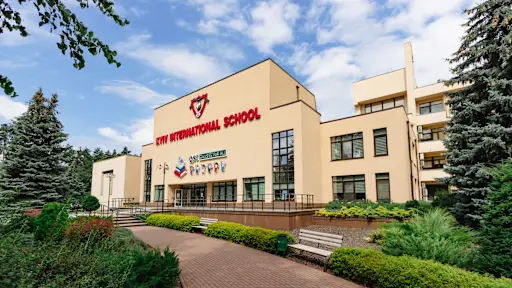
Kyiv International School (KIS), founded in 1992 in Kyiv’s leafy Svyatoshyn District, stands as a respected member of Quality Schools International (QSI), a global nonprofit network of college-preparatory schools. KIS follows an American-style, performance-based mastery learning model—so students move forward when they’ve truly grasped concepts, not based on age or grade level.
The school serves learners from Pre-K through Grade 12, offering both Advanced Placement (AP) courses and the International Baccalaureate (IB) Diploma Programme—giving students multiple paths to internationally recognized academic credentials. KIS is accredited by the Middle States Association of Colleges and Schools and belongs to CEESA, ensuring solid academic standards.
Set on a secure, park-like campus, KIS features an array of modern facilities: an indoor swimming pool, gyms with climbing wall, technology and art labs, a big library, an auditorium, café, playgrounds, and outdoor sports courts, all supported round-the-clock by security.
KIS emphasizes multilingualism and cultural awareness, offering French, German, Spanish, Russian, and Ukrainian language classes alongside the core English instruction. Before the full-scale reopening in August 2023, the school transitioned to online learning from February 2022 but has since returned to in-person teaching. Alumni have gone on to universities like Harvard, Yale, NYU, and Stanford.
On tuition, KIS temporarily reduced fees by 20% during the war—including a capital fund fee of around $1,600—making for more affordable year-round costs; bus transport is also offered at about $2,000 per year.
Also Read: Best Schools in Indiana
3. British International School Ukraine (BISU)
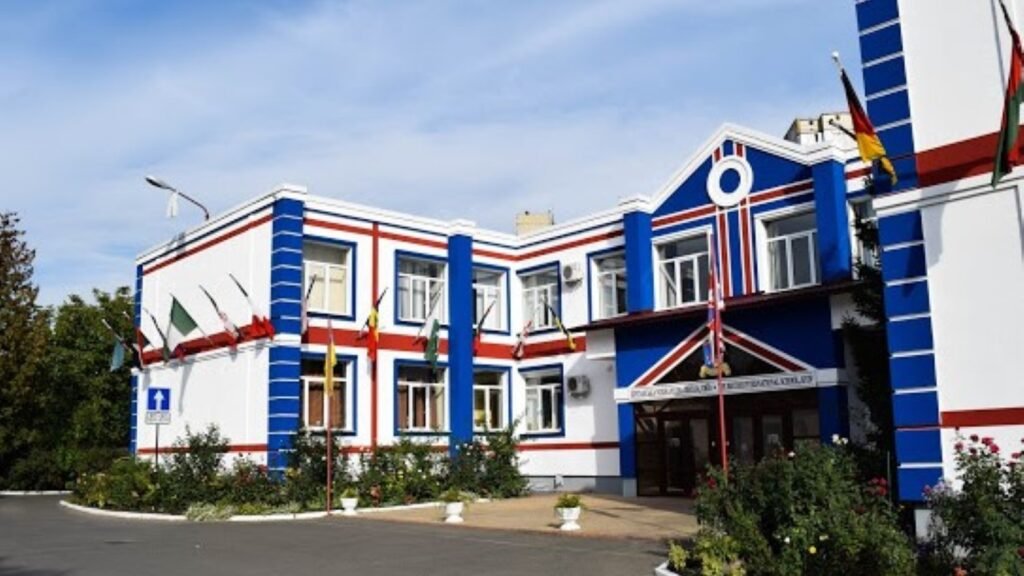
The British International School, Ukraine (BISU), founded in 1997, paved the way for British-style education in the country. It operates two campuses in Kyiv—Pechersk and Nivki—as well as a third in Dnipro, serving students aged 3 to 18 years. BISU delivers a comprehensive Cambridge Pathway (Early Years through IGCSE and A-Levels), and even the IB Diploma Programme in some cases, giving families a highly versatile curriculum. Local students also have the opportunity to pursue the Ukrainian national diploma (Atestat) alongside international qualifications.
As a proud member of COBIS (Council of British International Schools), BISU meets the same high educational standards as leading private schools in the UK. It also holds recognition for being one of the country’s most prestigious international schools, with around 87% of its graduates going on to higher education abroad.
One of BISU’s strengths is the A-Level programme—it was the first school in Ukraine to offer A-Levels, allowing students to continue their British academic pathway right up to graduation. Alongside academic rigor, BISU emphasizes student well-being, offering small class sizes, dual-language learning (English and Ukrainian), and strong support systems including onsite psychologists and tailored individual attention.
Beyond the classroom, BISU fosters global perspectives and real-world engagement. Its students participate in international projects such as Model United Nations and exchanges that build leadership and critical thinking
4. Lycée Français Anne de Kiev (LFADK)
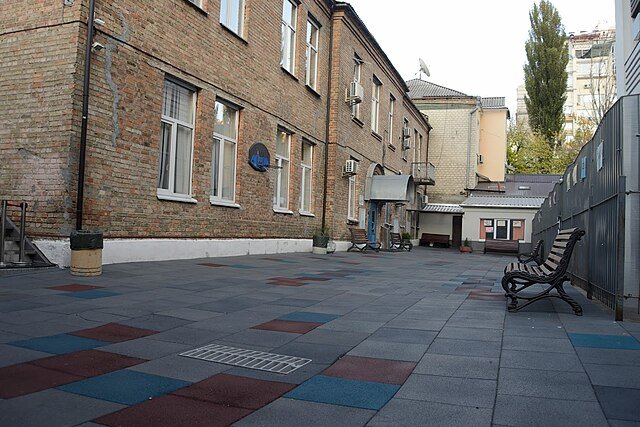
Lycée Français Anne de Kiev (LFADK) opened its doors in 1994 and has grown into the only French school in Ukraine officially approved by both the French and Ukrainian education ministries. It’s part of the prestigious AEFE (Agency for French Education Abroad) network, which connects nearly 500 schools worldwide that follow the French national curriculum and offer strong cultural continuity for Francophone families.
Nestled across multiple sites in Kyiv’s central area, LFADK serves students from pre-school through Terminale (12th grade), maintaining full French accreditation at every level. Many families also value its dual curriculum model: while following French national programs, Ukrainian students can take tailored national exams that allow them to earn both the French Baccalauréat and local Ukrainian diplomas.
LFADK’s academic outcomes speak for themselves—each graduating class boasts a 100% success rate on the Baccalauréat, with a notable share earning honors like Très Bien or Bien. As of 2020, the school community included around 450 students from approximately 21 nationalities, fostering a diverse yet close-knit environment.
Governed by parents in partnership with the AEFE, the school’s leadership reflects its community-focused ethos. The managing board includes parental representatives and even members of the French diplomatic and cultural corps.
During challenging times—including the onset of war in 2022—LFADK demonstrated resilience, swiftly transitioning to remote learning and then fully reopening in autumn 2022. The school even incorporated hybrid instruction through CNED (France’s national distance learning platform) for upper-grade subjects, ensuring academic continuity amidst uncertainty.
5. Deutsche Schule Kiew (German School of Kyiv)
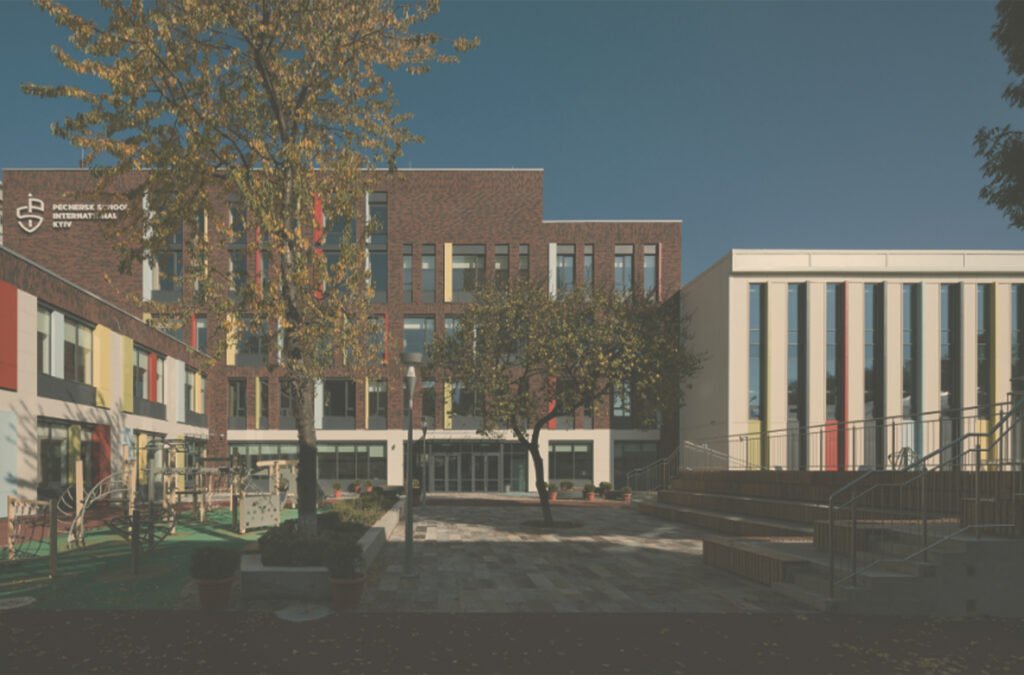
Deutsche Schule Kiew (DSK), established in 2008 in Kyiv’s Pechersk District, offers a distinctive German-style education deeply rooted in academic rigor and bicultural inclusion. Accredited by both Ukrainian authorities and Germany’s Central Agency for German Schools Abroad (ZfA) and supported by the German Foreign Office, DSK delivers a fully German curriculum from primary through secondary levels, leading to recognized German qualifications including the Hauptschulabschluss, Mittlere Reife (Realschulabschluss), and the Abitur.
Students at DSK follow a structured, rigorous program taught primarily by native German-speaking teachers. At the same time, Ukrainian students receive instruction in Ukrainian language and curriculum, allowing graduates to earn both German and Ukrainian secondary school diplomas. Many families see this dual qualification as one of the school’s greatest strengths—opening doors to universities across Germany and Europe, where the Abitur can even enable tuition-free study.
The school fosters an inclusive, respectful atmosphere—with students noting how quickly they immerse in German, even when starting from scratch, and praising the calm yet effective teaching environment. Parents often highlight the school’s relaxed, culturally rich feel and the potential for their child to pursue future education in Germany without hurdles.
During the challenges of war, DSK stood firm, maintaining operations by adapting to hybrid and remote learning and ensuring safety measures like a functional shelter were in place
6. Meridian International School
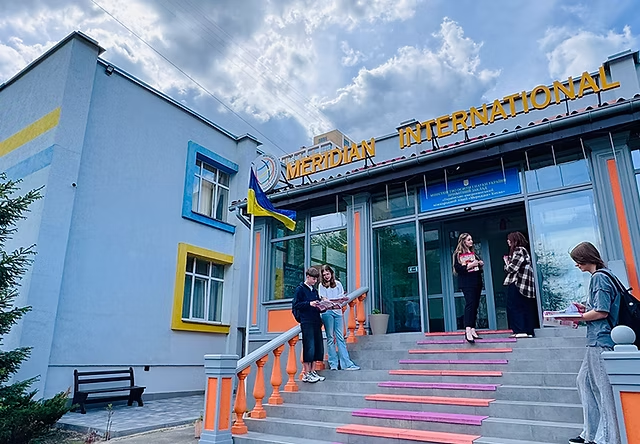
Meridian International Lyceum, established in 2001 and located in Kyiv’s Shevchenkivskyi (Podilskiy) District, offers a unique blend of Ukrainian and international education. Recognized by Ukraine’s Ministry of Education and an active member of the European Council of International Schools (ECIS), Meridian delivers a curriculum that fully satisfies Ukrainian national standards, while embedding English-language instruction and global perspective into its daily teaching.
Class sizes are intentionally small—generally under 18 students per class—allowing teachers to give individual attention and nurture a respectful, tight-knit learning environment. The faculty is deeply committed and diverse, blending both local and international educators to enrich the classroom experience.
Meridian’s campus includes modern facilities—computer labs, science laboratories, art studios, libraries, theatre spaces—and is packed with extracurricular options. The school offers activities such as clubs, cultural trips, competitions, and practical learning that extend beyond academics. Regular bus service across Kyiv ensures students from various neighborhoods can attend conveniently..
As of recent data, Meridian enrolls around 300 students across Pre-K to Grade 11, representing more than 20 nationalities—creating a multicultural yet community-oriented environment
7. Brookes CIL International School

Brookes CIL International School, one of Kyiv’s most forward-thinking additions, opened its doors in September 2022. It is a joint venture between the Brookes Education Group and CIL International, offering K–12 education in a state-of-the-art facility nestled in the Podil District. As an IB Candidate School, it’s actively pursuing authorization to deliver the full IB continuum—PYP, MYP, and DP—promising a truly global curriculum.
TigerJek sees Brookes CIL as a next-generation learning hub. The school building itself spans an expansive 25,000 m² and is packed with incredible features—from a dramatic triple-height atrium dubbed “the Heart of the School,” to a Creative & Media Hall equipped with advanced AV, theater rigging, and a black-box studio. Students also enjoy access to an NBA-size sports arena, Makerspaces for hands-on innovation, a rooftop garden, and a vast Learning Hub tailored for collaboration, quiet study, and tech-rich learning.
Beyond the impressive infrastructure, Brookes CIL puts a strong emphasis on character. Its core values—creativity, innovation, leadership, character, and connectivity—aim to nurture well-rounded global citizens. This goes hand in hand with real-world opportunities: personalized support through “The Future Center,” global student exchange programs, and a broad array of extracurricular activities ranging from Model UN to eco-clubs and creative arts.
With tuition ranging between $8,000–$15,000 per year, Brookes CIL balances modern teaching with global mobility, all delivered in a primarily English-language environment designed to foster future readiness.
Choosing the Right School in Kyiv
With so many options, the right choice depends on a family’s priorities:
- Curriculum Needs: IB is great for global mobility, British schools excel in structured academics, and national systems (French, German) maintain continuity for expat families.
- Tuition Range: Costs vary from $5,000 to $25,000 annually. Parents should balance budget with long-term education goals.
- Language of Instruction: For expat children, English-speaking schools (IB, British, American) may be easiest, while bilingual families may prefer French or German institutions.
- University Pathways: Consider where your child may want to attend university—UK, U.S., EU—and choose accordingly.
- Cultural Fit: Some schools emphasize community and cultural ties (French, German), while others focus on international diversity (IB, American).
FAQs for Parents
Q: What is the average tuition for international schools in Kyiv?
Most range between $8,000 and $20,000 per year, though IB schools like PSI are on the higher end.
Q: Do schools provide bus transport?
Yes, most international schools run buses covering major districts.
Q: Are Ukrainian public schools free?
Yes, they are tuition-free, but lessons are taught mainly in Ukrainian.
Q: How competitive is admission?
Top schools like PSI and BISU often have waiting lists. Early application is recommended.
Q: Do schools offer extracurricular activities?
Yes, from arts and sports to STEM clubs and Model UN, international schools in Kyiv emphasize holistic development.
Final Thoughts
Kyiv stands out as a city where education meets cultural diversity. Families can choose between globally recognized IB programs, structured British and American pathways, or French and German systems that maintain strong cultural ties. Schools here are not only about academics but also about nurturing well-rounded individuals ready to thrive in an interconnected world.
For parents, the best school in Kyiv will depend on long-term goals, budget, and the kind of community they want for their child. With such strong options available, Kyiv remains an excellent city to secure a world-class education.
Hi, I’m Haider Ali, author and co-founder of TigerJek.com. I’ve been deep into Roblox and mobile games for years, and I personally test every strategy, build, and method I cover. I like taking complicated mechanics and turning them into clear, simple guidance that helps players improve faster and enjoy the game more.


